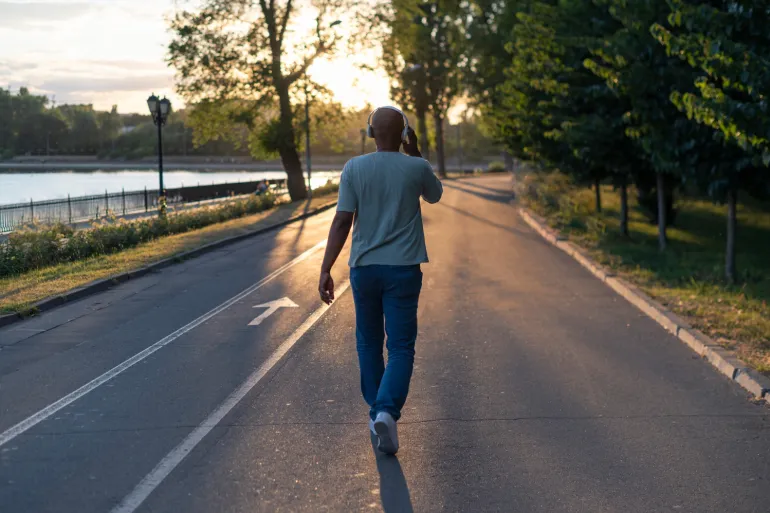Walking in the City.. Why is it Important for Your Mental Health?
November 3, 2025203 ViewsRead Time: 2 minutes

Font Size
16
When we imagine walking for "mental relaxation," our minds often go directly to open nature, forests, valleys, sea waves, trees, and falling leaves.
In contrast to this romantic imagination, cities seem to be a high-noise environment… cars / glass / asphalt / congestion… many believe that their psychological impact cannot be positive.
But recent research in environmental psychology says:
No… cities can also benefit the mind — provided we walk "mindfully" and "know where we are walking."
Why is walking beneficial in the first place?
Walking is a moderate activity — but it is actually one of the highest-return activities for public health:
it reduces heart disease — lowers blood pressure — decreases the risk of dementia — depression — and many cancers.
Is nature always better than the city?
Nature has an evolutionary advantage in the human brain — but the city is not zero benefit.
Cities are filled with scattered natural elements:
a beautiful solitary tree, a small park, a side green path, even an artificial pond — these elements can have a tangible psychological effect.
In a study by researcher Whitney Fleming from Bangor University/UK:
People who were asked to focus only on "greenness" while walking in the city — were less anxious and had more positive feelings after walking, compared to those who were asked to pay attention only to "man-made" elements.
The practical lesson:
There are "psychological rewards" that can occur within the cities themselves.
The city is not an imaginary enemy to your mental health.
What matters is the way you pay attention while walking — and where you choose to walk.
How can you benefit?
Choose a walking route that passes through areas with natural elements (tree, park, water…)
Walk at a moderate pace for 20-30 minutes
Focus your sight and awareness on the natural elements, not on the industrial noise
Try it 3 times a week — and monitor its effect on your mood and concentration
Even in large cities… we can build a healthy psychological path through small repeated steps.
